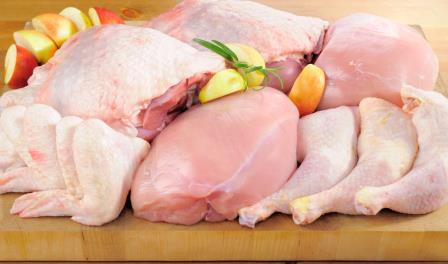Nigeria, a land of diverse cultures and vibrant traditions, boasts a culinary heritage that is as diverse as its people. One aspect of Nigerian cuisine that stands out is its rich and flavorful native soups. These soups are a staple in various ethnic groups across the country, each offering a unique combination of ingredients and spices. In this article, we will take a mouthwatering journey through Nigeria’s 15 best native soups, highlighting their distinct flavors, regional variations, and cultural significance.15 Best Native Soups in Nigeria
Read Also: Learn To Cook Egusi Soup With Spinach
The 15 Best Native Soups in Nigeria are:
1. Egusi Soup
Egusi soup is a popular native soup enjoyed by various Nigerian ethnic groups. Made from ground melon seeds and a blend of vegetables, it is known for its rich and nutty flavor. Often cooked with assorted meats, fish, or poultry, Egusi soup is typically accompanied by pounded yam or eba (garri) – a delicious combination loved across the nation.InformationGuideNigeria
2. Ogbono Soup
Ogbono soup, also called Draw Soup, is a thick and hearty native soup commonly found in Eastern Nigeria. It is made from the ground ogbono seeds, which lend the soup its characteristic slimy texture. Combined with vegetables, meat, or fish, Ogbono soup is best enjoyed with fufu, a staple made from cassava or yam flour.
3. Oha Soup
Originating from the Igbo tribe in Eastern Nigeria, Oha soup is a delicacy with a distinctive flavor. It is prepared using oha leaves, cocoyam, and a variety of meats or fish. The soup is often seasoned with local spices and served alongside pounded yam or cocoyam fufu, providing a delightful gastronomic experience.
4. Edikang Ikong Soup
Hailing from the Efik tribe in Southern Nigeria, Edikang Ikong soup is a nutritious delight. It combines two leafy vegetables – waterleaf – with various proteins, including stockfish and assorted meats. The resulting soup is both flavorful and visually appealing, usually served with garri or fufu.NYSC Portal
5. Afang Soup
Afang soup is a delectable delicacy popular among the Efik and Ibibio tribes in Southern Nigeria. This native soup features afang leaves, which are rich in essential nutrients, combined with meat, fish, or periwinkle. Afang soup is commonly paired with pounded yam or eba, adding to its savory experience.
Read Also: Learn To Prepare Achi Soup With Oha Leaves
6. Banga Soup
Originating from the Niger Delta region, Banga soup is a mouthwatering native soup with a distinct taste. It is prepared using palm fruit extract, seasoned with an array of spices, and often cooked with fresh fish or meat. Banga soup is best enjoyed with starch or garri, offering a burst of flavors.
7. Efo Riro
Efo Riro, a Yoruba native soup, is a favorite across Nigeria. Made from a variety of vegetables, including spinach, Efo Riro is often combined with meats, fish, or snails to enhance its taste. It is best paired with amala or semolina, delivering a wholesome and satisfying meal.JAMB Portal
8. Ewedu Soup
Ewedu soup is a simple yet delicious native soup originating from the Yoruba tribe. It is prepared using jute leaves, blended to achieve a slimy consistency. Traditionally served with amala or pounded yam, Ewedu soup is often garnished with assorted meats and enjoyed for its unique texture.
Read Also: Learn To Prepare Edikang Ikong Soup With Kpomo And Okazi Leaves
9. Bitterleaf Soup
As the name suggests, Bitterleaf soup derives its flavor from the leaves of the bitterleaf plant. It is popular among the Igbo and Edo tribes in Nigeria. The bitterness of the leaves is balanced by the addition of other ingredients such as fish, crayfish, and palm oil. Bitterleaf soup is often eaten with pounded yam, providing a delightful blend of flavors.
10. Miyan Kuka
Miyan Kuka, a native soup from the northern part of Nigeria, is made from powdered baobab leaves. This soup is typically cooked with meat, dried fish, or stockfish, creating a rich and tangy flavor. It is best enjoyed with tuwo shinkafa, a thick rice pudding that complements the soup’s texture.
11. Miyan Taushe
Miyan Taushe, also known as Pumpkin Soup, is a popular native soup in Northern Nigeria. It combines pumpkin leaves with ingredients such as beef, dried fish, and local spices. Miyan Taushe is usually paired with tuwo masara or tuwo shinkafa, offering a delightful taste of the region.What Are Security Challenges
12. Ila Alasepo
Ila Alasepo is a native soup from the Yoruba tribe, predominantly enjoyed in the southwestern part of Nigeria. Made with okra and a variety of meats or fish, this soup is known for its slimy texture and flavorful taste. It is often served with eba, pounded yam, or amala, leaving taste buds satisfied.105 Good Morning Love Messages
13. Nsala Soup
Nsala soup, also known as White Soup, originates from the Igbo tribe in Eastern Nigeria. It is made with catfish, yam, and a blend of spices, creating a light and refreshing flavor profile. Nsala soup is often served with pounded yam or fufu, making it a delightful option for a satisfying meal.200 Romantic Love Message
Read Also: How To Prepare Otong Soup With Beef
14. Atama Soup
Atama soup is a native delicacy originating from the Efik and Ibibio tribes in Southern Nigeria. It is prepared using atama leaves, palm fruit extract, and a combination of proteins such as periwinkle, fish, or meat. Atama soup is best enjoyed with garri or fufu, offering a delightful culinary experience.
15. Okazi Soup
Okazi soup, also called Ukazi soup, is a popular native soup in the eastern part of Nigeria. It features sliced Okazi leaves, combined with meat, fish, or snails. The soup is typically seasoned with local spices and enjoyed with fufu or pounded yam, providing a satisfying meal for any occasion.
Conclusion
Nigerian cuisine’s rich tapestry is vividly displayed in its native soups, each offering a unique blend of flavors, textures, and cultural significance. From the nuttiness of Egusi soup to the tanginess of Miyan Taushe, these 15 best native soups exemplify the diversity and culinary excellence of Nigerian gastronomy.
Read Also: How To Prepare Kuka Soup
Whether you’re exploring the eastern, western, northern, or southern regions of Nigeria, these soups are a must-try for anyone seeking an authentic taste of this vibrant nation. Embrace the adventure, savor the flavors, and indulge in the warmth of Nigerian hospitality through its remarkable native soups.
Check JAMB Result
Check and Confirm: How much is Dollar to Naira





